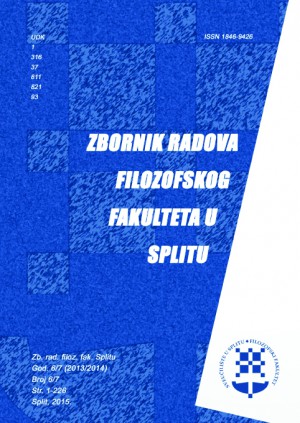GOSPODARSKE VEZE BOSANSKOG VOJVODE RADOSLAVA PAVLOVIĆA I DUBROVČANA
ECONOMIC RELATIONS BETWEEN THE BOSNIAN DUKE RADOSLAV PAVLOVIĆ AND THE INHABITANTS OF DUBROVNIK
Author(s): Ivana JurčevićSubject(s): Diplomatic history, Economic history, 15th Century
Published by: Filozofski fakultet, Sveučilište u Splitu
Keywords: Radoslav Pavlović; Dubrovnik inhabitants; rent; customs duty; trade; income; poklisars; mine Lead; Konavle;
Summary/Abstract: The great Bosnian Duke Radoslav Pavlović, one of the regional masters who left his mark upon the Bosnian medieval history of the first half of the 15th century, achieved his prolific political and economic activity through his relations with the inhabitants of Dubrovnik. This paper deals with his economic relations with the inhabitants of Dubrovnik. These relations brought him great financial and retail income. These were trade enterprises, in particular trading lead, renting customs services as well as charging customs duties. The income from invested money was saved in the Dubrovnik Komuna which was gained by sale of part of Konavle to Dubrovnik. These relations were gained with the help of Radoslav’s commissioners, who were poklisars enjoying great trust and respect in Dubrovnik. The successful economic relations of Radoslav Pavlović with the inhabitants of Dubrovnik were based on the advantages that the Pavlović family had, such as possessing Olovo (Lead) which was a significant mine of quality of lead, as well as significant custom duties in the hinterland of Dubrovnik and the Neretva Estuary and the trade routes which lead inland, to Bosnia, Serbia and Hungary. Also, the Pavlovićs owned a part of Konavle which the Dubrovnik inhabitants tried to include into their plans of territorial spreading. Mining products held an important place in the export trade of medieval Bosnia, and the crucial feature of the economic growth of Dubrovnik from the mid 14th century was precisely this widespread intermediary trade of mining products, silver and lead, from Bosnia and Serbia. It’s significant that the local population was included in trading with Bosnian lead, not only the inhabitants of Dubrovnik and the Bosnian king and nobilities, as for example Radoslav Pavlović, whose contribution is the topic of this paper. The greatest part of Bosnian lead from Dubrovnik ended up in foreign markets, Italy, Spain or Turkey, and only a small portion served to satisfy the local needs of Dubrovnik. The export of Bosnian lead took place also through Venice. Both Duke Radoslav Pavlović, as well as the rest of the regional masters and kings, rented their customs, mostly to people from Dubrovnik, such as lead and driev customs, of which he owned a quarter. They received the amount of rent money agreed upon, which ensured them a stable profit. This Bosnian duke also owned customs in other places where people of Dubrovnik came to sell their goods. In regions under his command Duke Radoslav made decisions on customs; transport, transitional as well as the customs in the very square where trading took place.
Journal: Zbornik radova Filozofskog fakulteta u Splitu
- Issue Year: 2016
- Issue No: 8
- Page Range: 133-148
- Page Count: 16
- Language: Croatian

